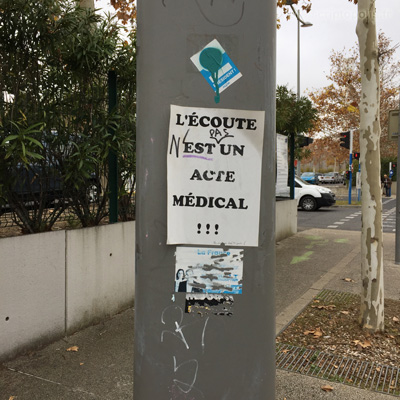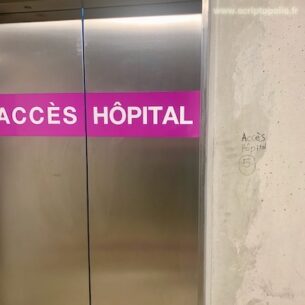Left behind accounts

In the South of France, November 2017.
The psychiatric hospital is a huge 1900’s building surmounted by a bell tower. Built out of the city town, it now belongs to the vast University clinic that has renamed the district “Hôpitaux-facultés” – and witnesses some of the clinical psychiatry historical changes.
By walking along the surrounding wall, the visitor spots an odd controversy. In France, for a dozen of years the hospital has earned the money that doctors bring in care. In short, the more medical doctors perform medical acts, the more the hospital raises money. It is to note that medical acts are indexed and have to be recorded in a national information system. This accounting arrangement focuses concerns and critics. Paramedical caregivers such as psychologists, nurses, or dieticians have become invisible workers, departments and teams are reorganized under a certain vision of care performance, and there is no incitation to increase the quality of the service. The quality issue is what we can read on the placard: being attentive is a medical act and must be visible including in accountability reports.
Yet the added “not” is ambiguous. Is that a provocative claim that psychiatric medicine is a technical activity? And that psychiatry does not mean to listen to the patient like psychanalysts do, who do not place electrodes or do IMRs? Unless that it is an error correction. A few departments, including psychiatry, still have general resources. That is to say that in psychiatry both to listen to a patient and administrate a treatment are not medical acts. Medical doctors are not bound to raise money settling the wage bills and financing any devices. It also means that the hospital top management are not interested in psychiatry so much. It is in a way left behind accounts.
With the placard, the visitor now fully enters into the accountability entanglement and the dramatic issue of health spending.






